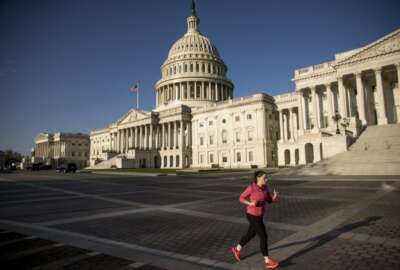Best time to retire: How about never?
Has your Thrift Savings Plan account shrunk by 20% or more? Has the private sector job you were considering as a second career gone away?
Has your Thrift Savings Plan account shrunk by 20% or more? Has the private sector job you were considering as a second career gone away — maybe for a long time, maybe forever?
Does Uncle Sam as your employer-for-life suddenly seem like a pretty good option rather than a life sentence?
With unemployment in the private sector soaring, and likely to get much worse before it gets better, sticking with Uncle Sam seems like a good idea to many who prior to COVID-19 were looking to retire in the next 12 to 18 months, maybe sooner. But now, maybe never or at least not until the economy returns to its 2009-to-early-2020 level. Which could be a long time.
Thanks to a graying workforce, about 15% percent of all federal and postal workers are eligible to retire now — today — this year. And while pundits have been predicting a retirement tidal wave year after year since the late 1990s it hasn’t happened. Because of that many people assumed that it would hit someday because it had too. Now that tsunami, if it ever was a threat, seems further away than ever.
While it is still much to early to see what if an impact our new world order has on federal retirements, Federal News Network’s Amelia Brust last month reported that OPM had received 6,566 retirement applications in March 2020, compared with 10,048 a year earlier.
Top-notch federal workers have always been in demand in the private sector. With their insider experience, contacts and portable pensions, the feds looked very good especially to employers that don’t offer defined benefit retirement packages. Which most now don’t. Most feds, even after they retire, have and continue to keep the best health insurance package in the nation. And the majority of those health insurance premiums (from 70%-75%) are paid for by the government, not the new company. On top of that feds who retire with Top Secret clearances are gold to many private employers. Those with law enforcement backgrounds are among the most employable.
In 2018 (aka the good old days) the Office of Personnel Management issued a report on the aging federal workforce. At the time the Department of Housing and Urban Development was (age-wise) the government’s senior center, with 24% eligible to retire. OPM projected that by 2023 the number of retirement-eligible employees at HUD would bump to 45%. The Environmental Protection Agency and NASA had about 20% of employees who were retirement-age still on the payroll. Government Executive said that would jump to 44% in another three years.
The Department of Homeland Security and the Small Business Administration had the youngest workforces of any major federal components. In each, still about 20% were eligible to retire when the study was taken. DHS has a large number of workers in law enforcement or other occupations that have a mandatory retirement age of 57. SBA is chock full of lawyers who move on to the private sector as soon as possible.
But whatever the situation in your agency, the bottom line for individuals is what’s in-it-for-you? Have your retirement plans changed since this all hit? Does the TSP and/or the economy, have to return to a certain level before you feel it safe to pull the plug? What’s the wisdom of the crowd, what are you thinking, what’s your plan? Contact me at mcausey@federalnewsnetwork.com No names of identifiers, unless you wish it.
Nearly Useless Factoid
By Amelia Brust
The Vatican’s bank, the has an ATM that allows users to make transactions in Latin.
Source: The Guardian
Copyright © 2024 Federal News Network. All rights reserved. This website is not intended for users located within the European Economic Area.
Mike Causey is senior correspondent for Federal News Network and writes his daily Federal Report column on federal employees’ pay, benefits and retirement.
Follow @mcauseyWFED




